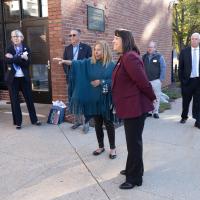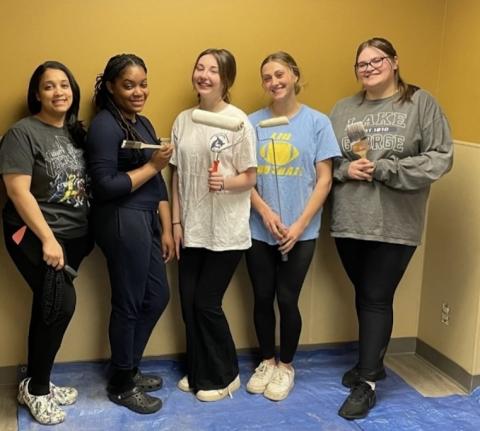
Westfield State Nursing Students Create Safe Space for Adolescent Patients at MiraVista

Students from the nursing department's Psychiatric Nursing class created a new adolescent waiting room at MiraVista Behavioral Health Center in Holyoke, MA.
In the spring of 2024, Dr. Sherri Fitzgerald, Assistant Professor of Nursing at Westfield State University, led a group of nursing students in a unique hands-on learning experience as part of the Psychiatric Nursing class. The students were placed at MiraVista Behavioral Health Center, an in-patient psychiatric hospital in Holyoke, MA, where they worked with both adolescent and adult psychiatric patients. Their final project centered on creating a safe, welcoming space for adolescent patients during their intake process by designing and furnishing a new, dedicated waiting room.
The students took a comprehensive approach to the project, from researching soothing color schemes and physically painting the room to conducting a bake sale to raise funds for furnishings. They also stocked the space with therapeutic items such as weighted blankets, fidget toys, art supplies, chalk for a chalkboard wall, bean bag chairs, and floor mats, aiming to provide comfort and calm during a stressful time.
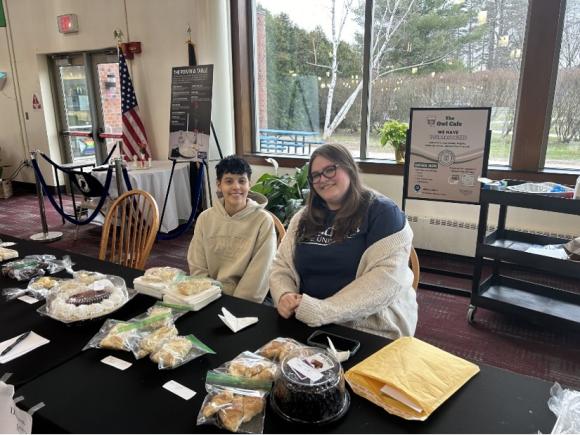
Emily Fernandez, a nursing student involved in the project, emphasized the importance of creating a comforting environment for adolescent patients. "It allows for a welcoming energy and environment for kids to come in, as it can be extremely overwhelming and challenging for them in these difficult times," she said. She noted that children often respond differently than adults to psychiatric care, making the dedicated space essential. "With MiraVista’s separate floor for adolescent patients and this room opening up, it allows kids and adults to both be separate and comfortable.”
Classmate Janitza Salcedo agreed, highlighting the difficulties some young patients face when entering psychiatric care. “For some adolescent children, it is their first time going through something like this. Being away from family and friends, and placed somewhere with strangers, can be scary,” she said. Salcedo also pointed to the broader issue of adolescent patients being underserved in the healthcare system, calling for more resources and better understanding of children’s unique needs.
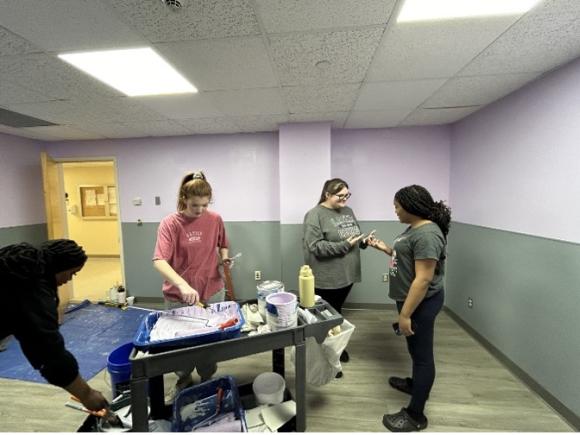
Fellow classmate Caroline Eckert underscored the unique vulnerability of adolescents as well, bringing attention to the delicate nature of this particular demographic. “adolescent patients are very vulnerable in terms of patient populations being served, as they are still developing their emotional and intellectual capacities,” she remarked. “In addition to this, they are not able to give informed consent on their own, which can be frustrating for these patients as they feel they know what's best for themselves. It is important for healthcare professionals to engage and value patients’ needs and opinions to make sure they are receiving the care they need.”
The adolescent patients at MiraVista responded enthusiastically to the new space. Fernandez recalled how patients communicated with the students about their interests and what helped them feel calm, with their suggestions being incorporated into the room’s design. “Every part of the project was amazing, working together as a team and getting to see this room come together, but my favorite part was the end and knowing what we created and how much it is going to benefit the kids.”
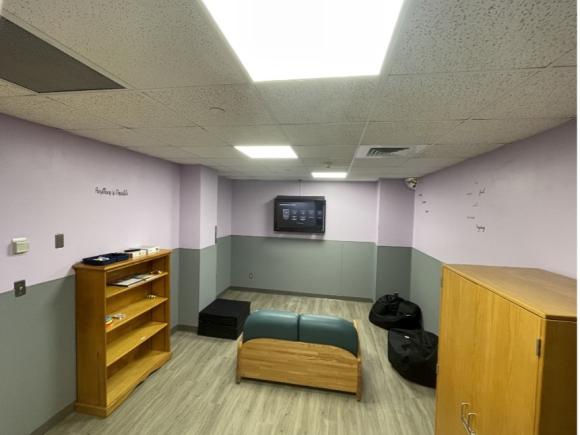
“The response from the adolescent patients on the unit was great,” Eckert reiterated. “When hearing that our clinical group was in the process of making an adolescent waiting room, many of the patients were eager to give ideas of what the space should look like. Many of the patients were also excited to hear that there was going to be a space just for them that was tailored to their interests and had things to help them in a time of transition and in distress.”
For Fernandez, Salcedo, and Eckert, the project not only made a difference for the patients but also inspired them to consider working with adolescent patients in their future careers. “After my experience at MiraVista on the adolescent unit, I would love to work with young patients,” Eckert said. “I not only enjoyed the conversations I had with the patients, but I learned a lot from them. Watching the patients build support systems with one another and encouraging each other to learn effective coping strategies was amazing to see.”
Fernandez echoed this sentiment, commenting, “Ever since I got to work with kids, I’ve wanted to be a adolescent nurse, and I feel blessed to have had this experience.”
Salcedo added, “Never say never!” when reflecting on the possibility of working with adolescents.

